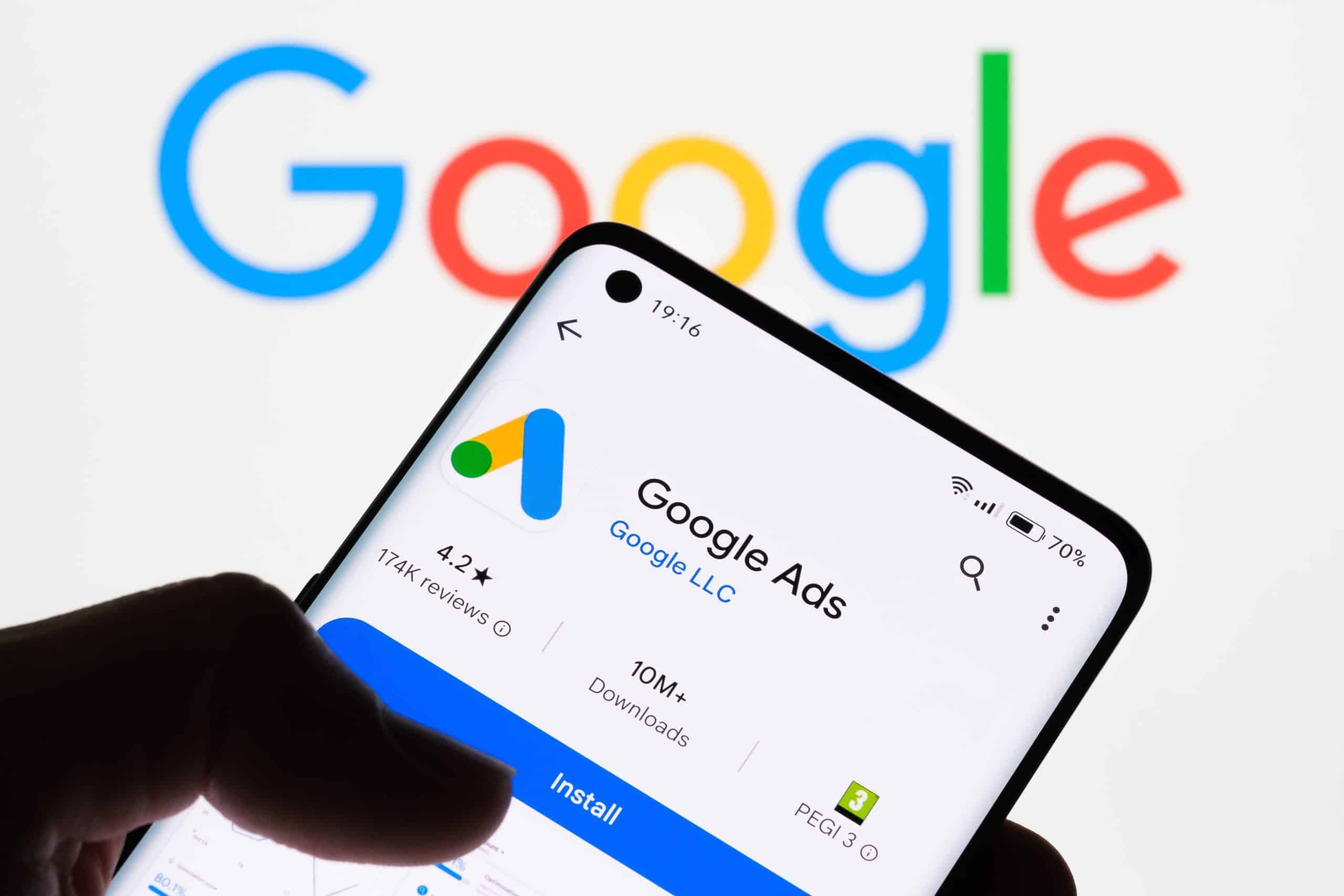Google Ads is the company’s pay-per-click platform, letting businesses reach customers in search results and on Google’s other properties, including YouTube and Blogger. If you’re a competitive person, the platform can seem fun for a while: You’re competing with other businesses for ad space — let the best marketer win!
Over time, though, the process often gets frustrating. Since Google uses an auction system for its ads, businesses complain that they tend to be expensive, requiring a serious investment to get in front of the best customers.
Luckily, Google Ads isn’t the only game in town, so it’s important to consider some of the best Google Ads alternatives out there.
Why Consider Alternatives to Google Ads?
Google Ads can be a great way to reach customers, but they do have some drawbacks. Those drawbacks include:
- Higher cost: For most industries, costs-per-click have risen dramatically, with many industries seeing lower conversion rates for that spend. That alone has businesses looking for options that provide a better return.
- Oversaturation: More competition doesn’t just drive up costs, it also makes it tougher to get through to customers, who are constantly bombarded with ads.
- Limited reach: While Google still holds an impressive majority of the search market, limiting advertising to Google Ads means you miss out on users who spend time elsewhere.
- Navigability: The Google Ads platform can be complicated, particularly for those who are new to it. Some advertisers prefer the interface seen on platforms like Facebook and Pinterest.
“Google Ads can be a powerful tool, but it’s not always the best fit for every small business,” points out business coach Sophie Musumeci. “Its complexity and cost can be prohibitive, especially for businesses with tight budgets or niche audiences. Exploring alternatives allows businesses to diversify their strategies, reach untapped audiences, and often achieve better ROI.”
Best Alternatives to Google Ads
Choosing the right Google Ads alternatives can be challenging. You need a platform that will put your ads in front of the right people, while also giving you a good cost per click. Here are some top alternatives to consider:
1. Facebook and Instagram Ads
Aside from YouTube, which is part of Google Ads, no other social media platform attracts more U.S. adults than Facebook. That makes it an ideal place to reach customers. The demographic skews older, though, so if you’re trying to reach 18- to 29-year-olds, Instagram is a better option.
The best thing about Facebook and Instagram is that you can advertise to both from the Meta advertising dashboard. The downside is that you’ll need to create eye-catching graphics and clickworthy ad copy to capture the attention of each platform’s users.
2. Bing
When it comes to organic search, nothing compares to Google, but its closest competitor is Microsoft Bing, which is the default search engine on the Microsoft Edge browser. As Saleha Malik, co-founder at S-SQUARED, points out, advertising with the second-best search engine platform has some benefits. “It’s often less competitive, making it more affordable, and still reaches millions of users, especially in B2B markets,” Malik says.
3. Pinterest
Pinterest is often left out of conversations about social media platforms, but it holds its own, falling fourth in popularity behind YouTube, Facebook, and Instagram. Pinterest users are largely female and skew younger than Facebook, and the nature of the platform lends itself to ads since its users are often searching for shopping inspiration. “Pinterest Ads can also be a great choice for creative businesses,” Musumeci says.
4. Amazon Ads
If you sell products on Amazon, Amazon Ads are the best way to reach customers on that platform. The setup is very similar to Google Ads, with an auction process that has you competing with other products in your category.
Amazon has multiple options for its advertisers:
- Sponsored Products: These ads appear in search results when someone looks for products on the site. Sponsored Product ads are technically more affordable than other options, but that also makes them more popular and therefore more competitive.
- Sponsored Brands: These are similar to Sponsored Products, but they promote your brand or a group of products rather than an individual item.
- Sponsored Display: These ads extend beyond the Amazon platform, showing ads for your Amazon products across the web.
- Sponsored TV: Amazon shows these ads on its streaming platforms, which include Prime Video, Freevee, Twitch, and Amazon Publisher Direct, which shows ads on non-Amazon-owned streaming properties.
5. Performance Marketing Platforms
As valuable as Google Ads can be, other performance channels tend to get better engagement. With this option, you choose a service that handles getting your content in front of potential buyers wherever they are. An example of a performance marketing channel can be native and display advertisement.
“Native advertising platforms are great for driving traffic to content and getting in front of new audiences,” Malik says. “They’re particularly useful for blogs, articles, or thought-leadership pieces.”
Scale performance beyond Search and Social with realize:
Learn MoreFactors to Consider When Choosing an Alternative to Google Ads
With so many options, it can be tough to make a choice. Here are some factors to consider when you’re in the market for a new advertising platform:
Audience Demographics
Whether you’re using Google Ads, a social media platform, or native advertising, it’s important to know who you’re trying to reach. Each platform has its own unique demographics, with some attracting more women than men, some skewing younger, and some attracting users who have certain interests. Understanding that can help you pick the right Google Ads alternative.
Budget
How much do you want to spend? With Google Advertising, you’ll likely need to shell out a significant sum just to compete. By niching down, you can spend a fraction of the money to get the same results, but you’ll need to check the minimum recommended spend before you choose one platform.
Tracking Tools
It’s tough to know how your ads are doing without some way to measure it. Each platform has its own dashboard with unique reporting methods. If possible, take a look at how these metrics are displayed on any platform you’re considering.
How to Maximize Success With Your New Ads Solution
Know Your Demographic
From the start, it’s important to know the audience most likely to be interested in your offerings. “Different platforms attract different demographics (age, gender, etc.), so before you launch any campaigns, it’s best to know where to concentrate your efforts,” advises Malik.
Test and Learn
You don’t have to invest a fortune into your campaigns to get started. In fact, Malik recommends starting small on various platforms and watching where you’re getting the best engagement. Then you can scale up wherever you’ll get the best return on your investment.
“It’s important to know how to grab your audience’s attention, whether that’s through more engaging creatives, entertaining videos, etc.,” says Malik. “It’s important to know, regardless of the platform, what your audience is likely to respond best to.”
Monitor and Optimize
Placing your ad is only the beginning. Malik stresses the importance of continuously monitoring and optimizing your campaigns. “You have to constantly learn from the data that you’re getting about which keywords or creatives are working and hone your strategy accordingly,” she says. “It’s very important to stay flexible and think strategically, even if the results aren’t quite what you expect.”
Key Takeaways
Google Ads are a valuable but expensive tool for businesses, especially lately, as costs for Google Ads have increased while conversions have declined. In terms of the best Google Ads alternatives available, social media advertising can be a more affordable way to reach more targeted audiences, while native advertising and Amazon ads can be effective alternatives for relevant businesses.
Frequently Asked Questions (FAQs)
Why are Google Ads so expensive?
Google Ads are expensive because they attract a wide range of businesses. As Musumeci explains, the platform uses competitive bidding, which can drive up costs for more saturated markets. For smaller players, she says that keywords in popular industries can become cost-prohibitive as larger players with bigger budgets flood the space.
“For example, industries like insurance or real estate often have keywords that cost hundreds of dollars per click, which can easily drain a small business’ marketing budget without significant returns,” Musumeci says.
Can I use multiple ad platforms simultaneously?
Not only is multiplatform advertising allowed, it’s recommended, as it’s a great way to test your ads on different platforms and see where you get the most engagement. At the same time, multiplatform advertising can also maximize your reach.
“However, there’s also a strong case for focusing on one platform and mastering it before branching out,” Musumeci cautions. “Becoming an expert in a single area — whether it’s Facebook Ads or Instagram Ads — allows you to refine your strategy, maximize ROI, and deeply understand what works for your audience.”
What are the best alternatives to Google Ads for small businesses?
Social media platforms can be a great place to reach niche customers. You can choose the platform where your target audience spends the most time and create compelling content that gets results.
“For small businesses, platforms like Facebook Ads and Instagram Ads are excellent options, offering advanced targeting capabilities and cost-effective campaigns,” Musumeci says. “Our focus is on these platforms because they allow businesses to connect directly with their ideal audience, build relationships, and drive results.”
What are the best Google Ads alternatives for B2B marketing?
For B2B marketers, Musumeci recommends LinkedIn Ads due to their precise targeting options for professional demographics — you can have your ads delivered to the very professionals most likely to make a purchase. “LinkedIn allows businesses to target decision-makers by job title, company size, and industry,” she says. “Additionally, niche trade publications or programmatic platforms can effectively connect with decision-makers in specific industries.” Explore more B2B social media trends here.



